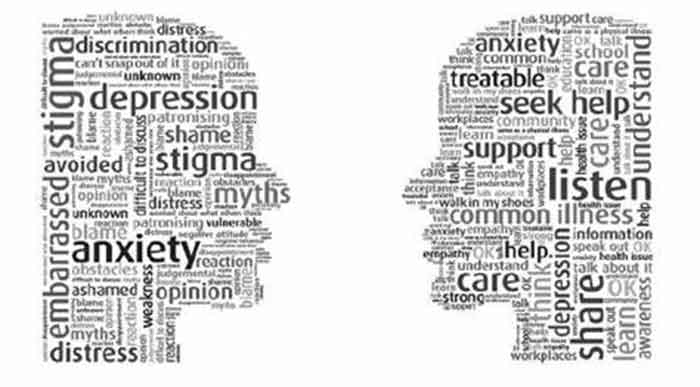
There is more to mental health besides the absence of mental diseases. The WHO’s definition of health, which is stated in its constitution, emphasizes the positive aspect of mental health: “Health is a state of complete bodily, mental, and social well-being and not merely the absence of disease or infirmity.” Concepts of mental health include subjective well-being, perceived self-efficacy, autonomy, competence, generational reliance, and the realization of the capacity to reach one’s intellectual and emotional potential. Sociology is a significant means for comprehending and treating mental illness. The social environment’s effects on mental health and illness have gained importance in terms of etiology and therapy. Although interest in the association between social issues and mental illness cannot be traced back to one point of origin, one of the theorists of Sociology is Emile Durkheim, who contributed substantially to that theory. Based on the findings of an empirical investigation where he found a significant association between high suicide rates and deplorable social situations. Unlike earlier ideas, this one asserts that mental illnesses are social illnesses.
MEANING OF HEALTH, MENTAL HEALTH, AND MENTAL ILLNESS:
- Health can be defined as a state of complete physical, mental, and social well-being and not merely the absence of disease or infirmity.
- Mental Health can be defined as the capacity of an individual to form harmonious relationships with others and to participate in, or contribute constructively to, changes in the social – environment.
- Mental Illness can be defined as experiencing severe and distressing psychological symptoms to the extent that normal functioning is seriously impaired. Examples of such symptoms include: – anxiety, depressed mood, obsessive thinking, delusions, and hallucinations.
The sociology of mental health and illness encompasses a number of ideas:
- The social construction of mental illness.
- The different approaches to mental illness include sociological and conventional methods.
- The distribution of mental illness by social groupings such as class, gender, and ethnicity.
Sociological theories and approaches to mental health
There are a number of perspectives through which we can understand mental health:
- The traditional model, which aims to explain mental health through science and medical knowledge is known as the biomedical perspective.
- The sociological model, which focuses on social circumstances and explanations, includes interactionist and structuralist perspectives.
The biomedical approach to mental health
According to the biological or biomedical perspective on mental health, the disease is caused by factors that are present in the physical or biological body. It contends that conditions including brain injury, tumors, lesions, defective genes, chemical and hormonal imbalances, etc. are the cause of mental diseases.
A lack of serotonin, a brain neurotransmitter, may be the cause of some types of depression.
In general, the biomedical-psychiatric approach holds that the majority of mental illness symptoms may be objectively identified and categorized. Regarding mental illness therapy, it favors patient-centered approaches that emphasize healing, such as:
- psychotherapy,
- medication, and in extreme cases,
- electroconvulsive or shock treatment,
- surgery
- detainment
- counseling
The sociological model of mental health
The sociological method is predicated on the notion that outside social influences have an impact on mental health and illness. Based on the notion that outside social variables influence mental health and illness, the social or sociological model of mental health was developed. It incorporates structuralist and interactionist viewpoints.
The biological perspective, on the other hand, aims to clarify mental health using medical and
scientific knowledge.
Two main perspectives on mental health in sociology: interactionism and structuralism.
- The interactionist approach
Interactionism, commonly referred to as labeling theory, is a viewpoint that focuses on understanding how people behave in face-to-face interactions and how people and circumstances are characterized or categorized in specific ways
According to the labeling theory, there are a number of drawbacks for a person once they have been classified as mentally ill. This happens because it is then thought that every action, they take is proof of their mental health. According to Erving Goffman’s research, once a person is confined to a mental institution, they are deprived of their personal identity and made to fit the mould of the “mentally ill.”
He saw that mentally sick patients lose their sense of self after being forced to accept their “mentally ill” status after being isolated and having all of their daily activities systematized.
- The structuralist approach
Structuralists argue that there is a social pattern to mental illness. A range of cultural and material factors that structure society and can contribute to poor mental health explain these patterns. This suggests that mental illness cannot stem purely from biological or individual factors.
R. D. Laing challenged the biomedical approach to mental illness and methods of psychiatry upheld by the medical establishment at the time. He rejected the idea that mental illness originated in the physiological organs, pointing to structuralist explanations.
Laing suggested that the causes of mental illness, particularly deeply misunderstood disorders such as schizophrenia, are located in the structure of society and in people’s relationships with others, particularly the nuclear family
Mental health has two aspects.
1) Individual Aspect: First is the individual aspect which means the individual is internally adjusted, free from internal conflicts, self-confident, adequate, and relieved from tensions or inconsistencies.
2) Social Aspect: The second aspect is the social aspect in which society has certain value systems, customs, and traditions by which it governs itself and promotes the general welfare of its members. The individual becomes like a person who is acceptable as a member of society, where internal adjustment takes place and shows considerable behavior. It establishes a satisfactory relationship between himself and his environment, between his needs, desires, and those of other people. If one can meet the needs and demands of the situation, then he has achieved adjustment in a social setup.
Way forward
In order to keep ourselves and our families healthy and prevent mental diseases, it is important to understand the social origins of mental disorders. Sociologists play an equally important role in the diagnosis of mental disorders as psychologists and psychiatrists do because they are correctly aware of the hidden social and cultural causes of conditions like depression, mania, and schizophrenia, among others, and because they are committed to promoting mental health. Sociologists lessen the stigma associated with mental illness in their minds and offer social rehabilitation, whilst psychiatrists and psychologists detect mentally ill people at an early stage and offer treatment options. In order to treat mental illness, social management plays a similar role to psychological and medical management.
Sada is a Ph.D. scholar majoring in Sociology. She is a gold medallist and a recipient of a merit award from Aligarh Muslim University. She works and writes on gender-related issues and the sociology of health in India.














































